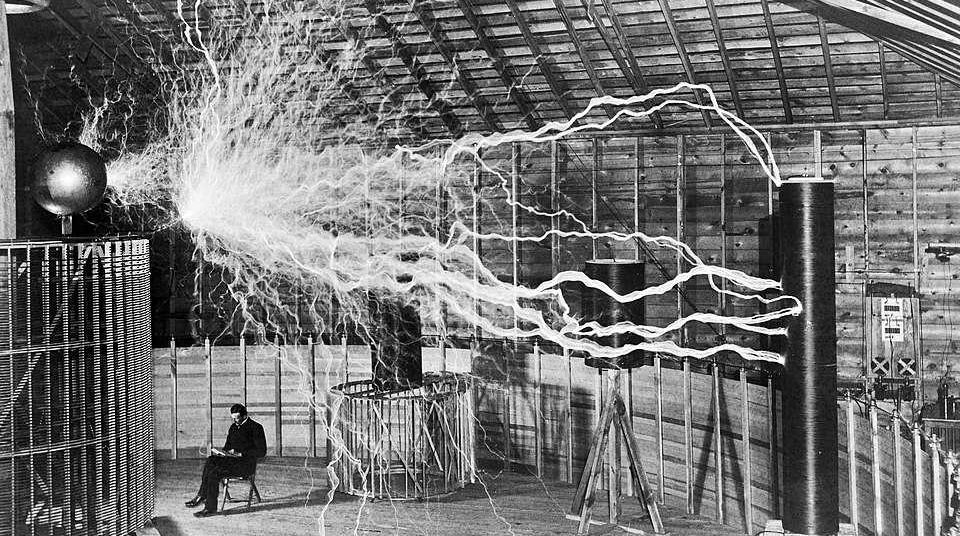Our own history shows why the NFL's new anthem policy is incredibly unpatriotic.
The decision comes on the heels of months of debate on who gets the right to protest, and where.
Some pretty unreal news is sweeping the sports world.
NFL owners approved a national anthem policy that requires players to stand on the football field during the national anthem.
According to officials, the policy was a unanimous decision from NFL owners.
The policy requires players to stand on the field, but allows them to remain in the locker room during the anthem if they so choose. Should players kneel during the anthem, their team will be fined.
The law, which is a pretty blatant infringement on the First Amendment right to protest or peacefully assemble, was met with outrage from celebrities, academics, and citizens around the country.
The decision comes on the heels of months of debate on who gets the right to protest, and where.
When former NFL quarterback Colin Kaepernick began kneeling during the national anthem in 2016 after multiple unarmed black men were shot and killed by police officers, league owners were enraged. His peaceful, silent protest against police brutality spurred outrage from mostly white NFL fans.
Photo by Thearon W. Henderson/Getty Images.
In spite of pushback from audiences, the NFL protests continued to gain traction as predominate black players from teams like the Houston Texans, Kansas City Chiefs, and Denver Broncos joined in the protest in their own ways. And they weren't the only ones.
Photo by Billie Weiss/Getty Images.
NBA star LeBron James wore an "I Can't Breathe" back in 2014, and WNBA players have peacefully stood against injustice for years, using their status as prominent athletes to raise awareness on important issues.
NFL leaders attempted to reprimand the players through various tactics — perhaps most notably blackballing Kaepernick — but players have continued to remain true to their rights as American citizens and the root of American values: standing up for what one believes is right. And some NFL leaders, like Jets owner Christopher Johnson, have already pledged to support players who continue to do so.
Yet, overall, the NFL has made it clear that this value is only a privilege of those deemed "worthy" of a right to protest, a reality black protestors across the U.S. are all too familiar with.
When Muhammad Ali protested the Vietnam War by refusing to enlist, his boxing license was suspended in New York the same day, along with his champion title. When Olympic athletes Tommie Smith and John Carlos protested America's treatment of black Americans in the 1960s by raising their fists on the Olympic podium, they were stripped of their medals as white audiences spewed endless hatred. Perhaps most notably, Martin Luther King Jr.'s unwavering commitment to peaceful protest led to endless character attacks from the government, unwarranted stints in jail, and ultimately, his assassination.
Time and time again, black leaders, athletes, celebrities, and other visible faces speak up in the face of injustice, only to be put in a ludicrous box of criminality by white Americans. Decades after they speak up, our country turns them into martyrs, chanting about the grandness of their fearlessness, and framing them as heroes in elementary school classrooms.
But black people deserve that support more so much earlier on.
For years, America has had to relearn the hard lesson of actually living by the laws it claims to uphold, instead of only allowing the freedom of speech and right to protest to apply to people who are deemed "respectable" by those in power. But this nation doesn't have to be like this.
Photo by Drew AngererGetty Images.
The NFL can be a a league that abides by our nation's inherent laws and ethics of freedom of speech and assembly by ensuring that those apply to everyone on the field.
They can listen to what black people are saying when they declare that black lives matter. They can pay attention to the reasons behind football players' protest, and they can uplift athletes who are using their power for good now instead of making them heroes when it's too late. And we can help them do it.
We can be better as sports fans, as current events commentators, and as Americans by allowing citizens of color to protest in their own, peaceful ways.
We have to. Our nation's soul depends on it.




 A man at a grocery store in the produce aisle.
A man at a grocery store in the produce aisle. A close-up of hands prepping baking ingredients.
A close-up of hands prepping baking ingredients.  A warehouse full of stacked boxes.
A warehouse full of stacked boxes.  A yellow shirt with a stain, lemon, and baking powder
A yellow shirt with a stain, lemon, and baking powder
 A UPS truck with package deliveries.Image via Wikipedia
A UPS truck with package deliveries.Image via Wikipedia
 Nikola Tesla with his equipment. via
Nikola Tesla with his equipment. via 